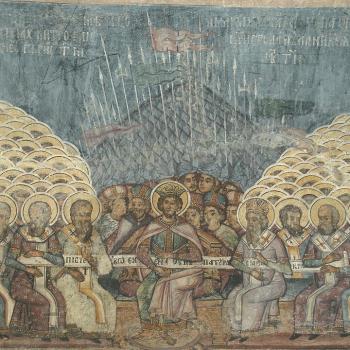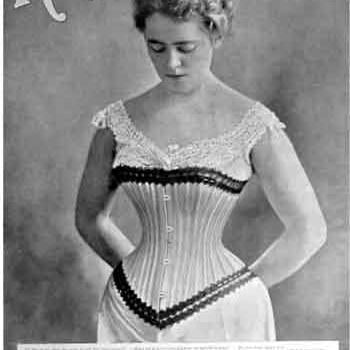
Nothing conjures up good Christmas cheer like St. Augustine. Consider this line from his Sermon 191 (out of an estimated 8,000 in his lifetime) delivered on Christmas Day: “He likewise made His Church a virgin by ransoming her from the fornication of demons.”
This quote appears in an Augustinian meditation on the miracle of the virgin birth. Christ was born of a woman, says Christian doctrine, and yet had supernatural origins. As the prophet Isaiah predicted, “The virgin will be with child and will give birth to a son, and will call him Immanuel.” Christ, who is “God with us,” was not born of ordinary parents. Even if not of virginal origins, Augustine contends, Christ could have been borne of the fornication of demons.
I bet your pastor didn’t make this point in an Advent sermon this year. The past really is a foreign country! Here is a long passage from the same sermon, which is suffused with supernatural logic and vocabulary:
The Church, therefore, imitating the Mother of her Lord in mind, though not in body, is both mother and virgin. Since the virginity of His Mother was in no way violated in the birth of Christ, He likewise made His Church a virgin by ransoming her from the fornication of demons. You holy virgins, born of her undefiled virginity, who, scorning earthly nuptials, have chosen to be virgins in the flesh, rejoice now and celebrate with all solemnity the fecundity of the Virgin on this day. The Lord was, indeed, born of a woman, but He was conceived in her without man’s co-operation. He who has offered to you this blessing of virginity to cherish did not deprive His Mother of that gift. Far be it that He who repairs in you the harm wrought by Eve should even in the slightest degree mar in His Mother Mary that virginity which you have prized.
She in whose footsteps you are following had no human intercourse when she conceived; she remained a virgin when she brought forth her child. Imitate her as far as you can, not in her fecundity, because this is not in your power, but in the preservation of your virginity. She alone enjoyed both prerogatives; you have chosen one of them and you lose this one if you desire to possess both. She alone could be both virgin and mother because she brought forth the omnipotent Lord by whose power she thus miraculously conceived. It was fitting that the only-begotten Son of God alone should become the Son of Man in this way. Nevertheless, the fact that Christ is the Son of only one virgin does not preclude any relation between you and Him. Indeed, you have gained as the spouse of your heart Him whom you could not bring forth as your child in the flesh. He is a spouse whom your joy so cherishes as a redeemer that your virginity does not shrink from Him in fear of violation. For He who did not deprive His Mother of virginity by actual child-bearing preserves that virginity in you to a much greater degree in His spiritual embrace.
Do not consider yourselves sterile because you remain virgins, for that holy integrity of the flesh conduces to fertility of the soul. Do as the Apostle directs. Since you do not ponder over the things of the world, wondering how you may please husbands, think about the things of the Lord and consider how you can please Him in all respects, so that you may have offspring, not of the flesh, but of the soul, that is, of virtues. Finally, I address all here present; I speak to all; I include in my exhortations the whole Church, that chaste virgin whom the Apostle speaks of as espoused to Christ. Do, in the inner chambers of your soul, what you view with amazement in the flesh of Mary. He who believes in his heart unto justice conceives Christ; he who with his mouth makes profession of faith unto salvation brings forth Christ. Thus, in your souls, let fertility abound and virginity be preserved.
In our better moments, we contemplate the “inner chambers of our soul” and “His spiritual embrace.” We worry about neutering the Christmas spirit with material gifts. But we think less about another kind of materialism, the kind that sniffs condescendingly at the notion of demons and angels inhabiting human space. Contemporary Christians from the Majority World and historical Christians from the fourth century challenge us to reckon with the potent supernatural claims of the Christmas story.











